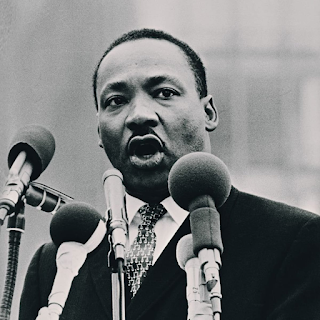Martin Luther King Jr.: A Beacon of Hope and Equality
Martin Luther King Jr., a name that reverberates with the echoes of freedom, justice, and equality, stands as one of the most iconic figures in the fight against racial discrimination. From his early days as a pastor to his leadership in the Civil Rights Movement, King's unwavering commitment to nonviolent resistance and his iconic "I Have a Dream" speech continue to inspire generations seeking a world marked by equality and understanding.
I. Early Life and EducationMartin Luther King Jr.
Born in Atlanta, Georgia, on January 15, 1929, Martin Luther King Jr. was the son of a Baptist minister. His upbringing in a devout household and his education at Morehouse College laid the foundation for his future advocacy for social justice.
II. Civil Rights Movement Beginnings
King's involvement in the Montgomery Bus Boycott marked his emergence as a leader in the Civil Rights Movement. This protest against racial segregation on public transportation would set the stage for his role in addressing broader issues of inequality.
"The time is always right to do what is right." - Martin Luther King Jr.
III. Nonviolent Resistance and Philosophy
Inspired by Mahatma Gandhi's principles of nonviolent protest, King believed in confronting injustice through peaceful means. His philosophy emphasized love, compassion, and understanding as powerful tools for social change.
"Darkness cannot drive out darkness; only light can do that. Hate cannot drive out hate; only love can do that." - Martin Luther King Jr.
IV. Leadership in Birmingham and Selma
King's leadership was instrumental in the Birmingham campaign, which exposed the brutality of segregationist practices to the nation. His "Letter from Birmingham Jail" eloquently articulated the urgency of addressing racial injustice through direct action.
"Injustice anywhere is a threat to justice everywhere." - Martin Luther King Jr.
V. March on Washington and "I Have a Dream" Speech
The historic March on Washington in 1963 culminated in one of King's most iconic moments. His "I Have a Dream" speech, delivered from the steps of the Lincoln Memorial, echoed his vision of a world where individuals are judged by their character, not their skin color.
"I have a dream that my four little children will one day live in a nation where they will not be judged by the color of their skin but by the content of their character." - Martin Luther King Jr.
VI. Nobel Peace Prize and Advocacy"I have a dream"
In 1964, King was awarded the Nobel Peace Prize for his leadership in the struggle for civil rights. He continued to advocate for equality, speaking out against poverty, racism, and war.
"Our lives begin to end the day we become silent about things that matter." - Martin Luther King Jr.
VII. Chicago and Economic Justice
King's mission extended to economic justice, as he focused on the plight of the urban poor in Chicago. He highlighted the link between racial and economic disparities and the need for comprehensive change.
VIII. Opposition and Struggles
Despite his message of nonviolence, King faced opposition from various quarters. Threats, arrests, and challenges within the civil rights movement tested his resolve.
"We must learn to live together as brothers or perish together as fools." - Martin Luther King Jr.
IX. Legacy and Assassination
On April 4, 1968, tragedy struck when Martin Luther King Jr. was assassinated in Memphis, Tennessee. His death sent shockwaves through the nation, but his legacy endured.
"The ultimate measure of a man is not where he stands in moments of comfort and convenience, but where he stands at times of challenge and controversy." - Martin Luther King Jr. Assassination of Martin Luther King Jr.
X. Continued Influence and Recognition
King's impact remains tangible today. The establishment of Martin Luther King Jr. Day as a federal holiday honors his contributions, and his ideals continue to inspire movements for justice and equality around the world.
Conclusion
Martin Luther King Jr.'s life was a testament to the power of conviction, courage, and compassion in the face of injustice. His legacy reminds us that change is possible when driven by a commitment to humanity and a belief in the inherent worth of every individual. As we reflect on his words and deeds, we are called to continue the journey toward a world where his dream of equality is fully realized.




Comments
Post a Comment